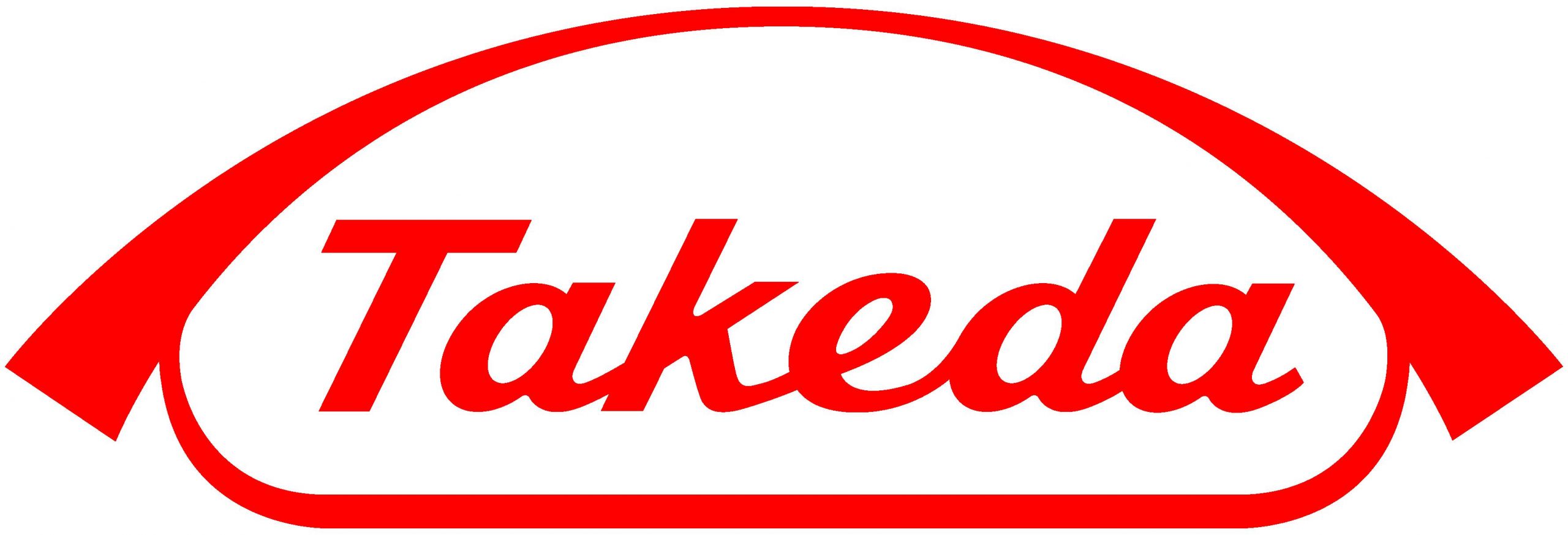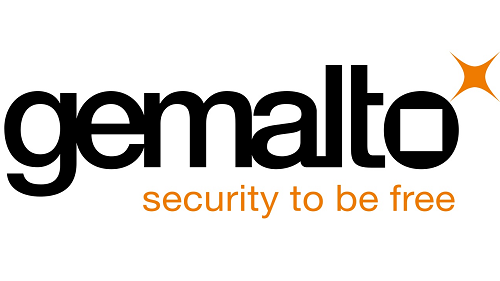NOT FOR RELEASE, PUBLICATION OR DISTRIBUTION, IN WHOLE OR IN PART, DIRECTLY OR INDIRECTLY, IN ANY JURISDICTION WHERE TO DO SO WOULD CONSTITUTE A VIOLATION OF THE RELEVANT LAWS OF SUCH JURISDICTION
OSAKA, Japan–(BUSINESS WIRE/AETOSWire)– Takeda Pharmaceutical Company Limited (TSE: 4502) (“Takeda”) today issued the following statement with regard to its discussions with the European Commission (“EC”) as part of its Phase 1 review of the proposed acquisition of Shire plc (“Shire”) announced on May 8, 2018 (the “Acquisition”):
Takeda confirms that it is in discussions with the EC in relation to the future potential overlap in the area of inflammatory bowel disease between Takeda’s marketed product Entyvio (vedolizumab) and Shire’s pipeline compound SHP647, which is currently in Phase III clinical trials, and has proposed a remedy of a potential divestment of SHP647 and certain associated rights.
The company remains committed to Entyvio, which has been granted marketing authorization in more than 60 countries and is the cornerstone of Takeda’s diverse specialty gastrointestinal portfolio.
Takeda confirms that there are no discussions with the EC regarding any other marketed products or assets in the pipeline.
Takeda does not anticipate that its discussions with the EC will result in a delay to its previously announced timetable for completion of the transaction. A further announcement will be made as appropriate.
The Acquisition remains subject to certain other conditions, including receipt of the remaining regulatory clearances and approval by the shareholders of both companies.
About Entyvio® (vedolizumab)
Vedolizumab is a gut-selective biologic and is approved as an intravenous (IV) formulation.1 It is a humanized monoclonal antibody designed to specifically antagonize the alpha4beta7 integrin, inhibiting the binding of alpha4beta7 integrin to intestinal mucosal addressin cell adhesion molecule 1 (MAdCAM-1), but not vascular cell adhesion molecule 1 (VCAM-1).2 MAdCAM-1 is preferentially expressed on blood vessels and lymph nodes of the gastrointestinal tract.3 The alpha4beta7 integrin is expressed on a subset of circulating white blood cells.14 These cells have been shown to play a role in mediating the inflammatory process in ulcerative colitis (UC) and Crohn’s disease (CD).4 5 By inhibiting alpha4beta7 integrin, vedolizumab may limit the ability of certain white blood cells to infiltrate gut tissues.
Vedolizumab IV is approved for the treatment of adult patients with moderately to severely active UC and CD, who have had an inadequate response with, lost response to, or were intolerant to either conventional therapy or a tumor necrosis factor-alpha (TNFα) antagonist. Vedolizumab IV has been granted marketing authorization in over 60 countries, including the United States and European Union, with over 200,000 patient years of exposure to date. 6
Therapeutic Indications
Ulcerative colitis
Vedolizumab is indicated for the treatment of adult patients with moderately to severely active ulcerative colitis who have had an inadequate response with, lost response to, or were intolerant to either conventional therapy or a tumor necrosis factor-alpha (TNFα) antagonist.
Crohn’s disease
Vedolizumab is indicated for the treatment of adult patients with moderately to severely active Crohn’s disease who have had an inadequate response with, lost response to, or were intolerant to either conventional therapy or a tumor necrosis factor-alpha (TNFα) antagonist.
Important Safety Information
Contraindications
Hypersensitivity to the active substance or to any of the excipients.
Special warnings and special precautions for use
Vedolizumab should be administered by a healthcare professional equipped to manage hypersensitivity reactions, including anaphylaxis, if they occur. Appropriate monitoring and medical support measures should be available for immediate use when administering vedolizumab. Observe all patients during infusion and until the infusion is complete.
Infusion-related reactions
In clinical studies, infusion-related reactions (IRR) and hypersensitivity reactions have been reported, with the majority being mild to moderate in severity. If a severe IRR, anaphylactic reaction, or other severe reaction occurs, administration of vedolizumab must be discontinued immediately and appropriate treatment initiated (e.g., epinephrine and antihistamines). If a mild to moderate IRR occurs, the infusion rate can be slowed or interrupted and appropriate treatment initiated (e.g., epinephrine and antihistamines). Once the mild or moderate IRR subsides, continue the infusion. Physicians should consider pre-treatment (e.g., with antihistamine, hydrocortisone and/or paracetamol) prior to the next infusion for patients with a history of mild to moderate IRR to vedolizumab, in order to minimize their risks.
Infections
Vedolizumab is a gut-selective integrin antagonist with no identified systemic immunosuppressive activity. Physicians should be aware of the potential increased risk of opportunistic infections or infections for which the gut is a defensive barrier. Vedolizumab treatment is not to be initiated in patients with active, severe infections such as tuberculosis, sepsis, cytomegalovirus, listeriosis, and opportunistic infections until the infections are controlled, and physicians should consider withholding treatment in patients who develop a severe infection while on chronic treatment with vedolizumab. Caution should be exercised when considering the use of vedolizumab in patients with a controlled chronic severe infection or a history of recurring severe infections. Patients should be monitored closely for infections before, during and after treatment. Before starting treatment with vedolizumab, screening for tuberculosis may be considered according to local practice. Some integrin antagonists and some systemic immunosuppressive agents have been associated with progressive multifocal leukoencephalopathy (PML), which is a rare and often fatal opportunistic infection caused by the John Cunningham (JC) virus. By binding to the α4β7 integrin expressed on gut-homing lymphocytes, vedolizumab exerts an immunosuppressive effect on the gut. Although no systemic immunosuppressive effect was noted in healthy subjects, the effects on systemic immune system function in patients with inflammatory bowel disease are not known. Healthcare professionals should monitor patients on vedolizumab for any new onset or worsening of neurological signs and symptoms, and consider neurological referral if they occur. If PML is suspected, treatment with vedolizumab must be withheld; if confirmed, treatment must be permanently discontinued. Typical signs and symptoms associated with PML are diverse, progress over days to weeks, and include progressive weakness on one side of the body, clumsiness of limbs, disturbance of vision, and changes in thinking, memory, and orientation leading to confusion and personality changes. The progression of deficits usually leads to death or severe disability over weeks or months.
Malignancies
The risk of malignancy is increased in patients with ulcerative colitis and Crohn’s disease. Immunomodulatory medicinal products may increase the risk of malignancy.
Prior and concurrent use of biological products
No vedolizumab clinical trial data are available for patients previously treated with natalizumab. Caution should be exercised when considering the use of vedolizumab in these patients. No clinical trial data for concomitant use of vedolizumab with biologic immunosuppressants are available. Therefore, the use of vedolizumab in such patients is not recommended.
Vaccinations
Prior to initiating treatment with vedolizumab all patients should be brought up to date with all recommended immunizations. Patients receiving vedolizumab may receive non-live vaccines (e.g., subunit or inactivated vaccines) and may receive live vaccines only if the benefits outweigh the risks.
Adverse reactions include: nasopharyngitis, headache, arthralgia, upper respiratory tract infection, bronchitis, influenza, sinusitis, cough, oropharyngeal pain, nausea, rash, pruritus, back pain, pain in extremities, pyrexia, and fatigue.
Please consult with your local regulatory agency for approved labeling in your country.
For U.S. audiences, please see the full Prescribing Information including Medication Guide for ENTYVIO®.7
For EU audiences, please see the Summary of Product Characteristics (SmPC) for ENTYVIO®.
Takeda’s Commitment to Gastroenterology
Gastrointestinal (GI) diseases can be complex, debilitating and life-changing. Recognizing this unmet need, Takeda and our collaboration partners have focused on improving the lives of patients through the delivery of innovative medicines and dedicated patient disease support programs for over 25 years. Takeda aspires to advance how patients manage their disease. Additionally, Takeda is leading in areas of gastroenterology associated with high unmet need, such as inflammatory bowel disease, acid-related diseases and motility disorders. Our GI Research & Development team is also exploring solutions in celiac disease and liver diseases, as well as scientific advancements through microbiome therapies.
About Takeda Pharmaceutical Company
Takeda Pharmaceutical Company Limited (TSE: 4502) is a global, research and development-driven pharmaceutical company committed to bringing better health and a brighter future to patients by translating science into life-changing medicines. Takeda focuses its R&D efforts on oncology, gastroenterology and neuroscience therapeutic areas plus vaccines. Takeda conducts R&D both internally and with partners to stay at the leading edge of innovation. Innovative products, especially in oncology and gastroenterology, as well as Takeda’s presence in emerging markets, are currently fueling the growth of Takeda. Approximately 30,000 Takeda employees are committed to improving quality of life for patients, working with Takeda’s partners in health care in more than 70 countries. For more information, visit https://www.takeda.com/newsroom/.
Important Notice
This announcement is not intended to, and does not, constitute, represent or form part of any offer, invitation or solicitation of an offer to purchase, otherwise acquire, subscribe for, sell or otherwise dispose of, any securities whether pursuant to this announcement or otherwise.
The distribution of this announcement in jurisdictions outside the United Kingdom or Japan may be restricted by law or regulation and therefore any person who comes into possession of this announcement should inform themselves about, and comply with, such restrictions. Any failure to comply with such restrictions may constitute a violation of the securities laws or regulations of any such relevant jurisdiction.
Publication on Website
In accordance with Rule 26.1 of the Code, a copy of this announcement will be made available (subject to certain restrictions relating to persons resident in restricted jurisdictions) on Takeda’s website at www.takeda.com/investors/offer-for-shire by no later than 12 noon (London time) on October 29, 2018. The content of the website referred to in this announcement is not incorporated into and does not form part of this announcement.
Disclosure requirements of the Code
Under Rule 8.3(a) of the Code, any person who is interested in 1% or more of any class of relevant securities of an offeree company or of any securities exchange offeror (being any offeror other than an offeror in respect of which it has been announced that its offer is, or is likely to be, solely in cash) must make an Opening Position Disclosure following the commencement of the offer period and, if later, following the announcement in which any securities exchange offeror is first identified. An Opening Position Disclosure must contain details of the person’s interests and short positions in, and rights to subscribe for, any relevant securities of each of (i) the offeree company and (ii) any securities exchange offeror(s). An Opening Position Disclosure by a person to whom Rule 8.3(a) applies must be made by no later than 3.30 pm (London time) on the 10th business day following the commencement of the offer period and, if appropriate, by no later than 3.30 pm (London time) on the 10th business day following the announcement in which any securities exchange offeror is first identified. Relevant persons who deal in the relevant securities of the offeree company or of a securities exchange offeror prior to the deadline for making an Opening Position Disclosure must instead make a Dealing Disclosure.
Under Rule 8.3(b) of the Code, any person who is, or becomes, interested in 1% or more of any class of relevant securities of the offeree company or of any securities exchange offeror must make a Dealing Disclosure if the person deals in any relevant securities of the offeree company or of any securities exchange offeror. A Dealing Disclosure must contain details of the dealing concerned and of the person’s interests and short positions in, and rights to subscribe for, any relevant securities of each of (i) the offeree company and (ii) any securities exchange offeror(s), save to the extent that these details have previously been disclosed under Rule 8. A Dealing Disclosure by a person to whom Rule 8.3(b) applies must be made by no later than 3.30 pm (London time) on the business day following the date of the relevant dealing.
If two or more persons act together pursuant to an agreement or understanding, whether formal or informal, to acquire or control an interest in relevant securities of an offeree company or a securities exchange offeror, they will be deemed to be a single person for the purpose of Rule 8.3.
Opening Position Disclosures must also be made by the offeree company and by any offeror and Dealing Disclosures must also be made by the offeree company, by any offeror and by any persons acting in concert with any of them (see Rules 8.1, 8.2 and 8.4).
Details of the offeree and offeror companies in respect of whose relevant securities Opening Position Disclosures and Dealing Disclosures must be made can be found in the Disclosure Table on the Panel’s website at www.thetakeoverpanel.org.uk, including details of the number of relevant securities in issue, when the offer period commenced and when any offeror was first identified. You should contact the Panel’s Market Surveillance Unit on +44 (0)20 7638 0129 if you are in any doubt as to whether you are required to make an Opening Position Disclosure or a Dealing Disclosure.
1 Entyvio® Summary of Product Characteristics. March 2018.
2 Soler D, Chapman T, Yang LL, et al. The binding specificity and selective antagonism of vedolizumab, an anti-α4β7 integrin therapeutic antibody in development for inflammatory bowel diseases. J Pharmacol Exp Ther. 2009;330:864-875.
3 Briskin M, Winsor-Hines D, Shyjan A, et al. Human mucosal addressin cell adhesion molecule-1 is preferentially expressed in intestinal tract and associated lymphoid tissue. Am J Pathol. 1997;151:97 110.
4 Eksteen B, Liaskou E, Adams DH. Lymphocyte homing and its roles in the pathogenesis of IBD. Inflamm Bowel Dis. 2008;14:1298 1312.
5 Wyant T, Fedyk E, Abhyankar B. An overview of the mechanism of action of the monoclonal antibody vedolizumab. J Crohns Colitis. 2016;10:1437-1444.
6 Takeda. 2018. Data on file.
7 Entyvio (vedolizumab) Prescribing Information. February 2018.
View source version on businesswire.com: https://www.businesswire.com/news/home/20181026005500/en/
*Source: AETOSWire


















